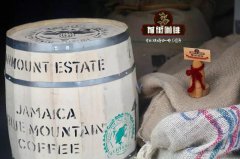What kind of coffee beans are the small grains produced in Yunnan, China? Yunnan Coffee Bean Iron pickup and Alibika
Yunnan small-grain coffee, Rubiaceae, coffee genus, the planting area is mainly distributed in Lincang, Baoshan, Simao, Xishuangbanna, Dehong, Nujiang and other states. Small grains of coffee are native to Ethiopia or Arabian Peninsula. It is cultivated in Fujian, Guangdong, Hainan, Guangxi, Sichuan, Guizhou and Yunnan. Superior geographical conditions make the coffee industry in Yunnan develop rapidly. In 2014, both planting area and output accounted for more than 99% of the country's total.
The Origin of small grains in Yunnan
In 1892, French missionary Father Tian succeeded in growing coffee in a place called Zhukula in Yunnan. Up to now, there are still 24 coffee trees with an age of more than 100 years in Zhukula Township. Zhu Kula is a mysterious, legendary and beautiful natural village, which belongs to the Zhukula Village Committee of Pingchuan Town, Binchuan County, Dali Prefecture. It is located on the bank of the Yubao River, a tributary of the Jinsha River. It is a place at the junction of Dali Prefecture, Chuxiong Prefecture and Lijiang City.
More than 100 years ago, Zhu Kula called "Ruokelai" (Yi language), which means crooked mountain road. In 1892, due to the arrival of the French missionary Father Tian, he combined the essence of Yi language with the romance of the French, so the name Zhu Kula came into being, and later generations translated it as "heaven on earth".
According to reports, in 1892, French missionary Father Tian used coffee fruit to breed the first coffee tree outside the church, and then cultivated more coffee trees and planted them around the church. Since then, the village of Zhukula began to grow coffee, and the village has been surrounded by coffee trees ever since. Qi Guanghui and Li Fusheng, the two oldest elders in the village, are both in their eighties this year, and together they have witnessed the formation of the oldest coffee forest in China.
Although Zhu Kula is poor and backward, it has an inextricable bond with coffee. In addition to growing coffee all over the country, the villagers all have a tradition of drinking coffee: self-growing, self-grinding and self-brewing, and now men, women and children in the village have the habit of drinking coffee. The villagers here have a special feeling for the coffee tree, even if the coffee beans do not bring them any economic benefits, the villagers are not willing to cut down a coffee tree.
Zhukula Village receives guests with local coffee and walnuts, although the coffee made from earthen cans is not the best, but this primitive drinking method reflects the love of coffee among Zhukula villagers and is the highest etiquette reception for guests. The unique and rich original coffee culture makes everyone who knows Zhu Kula have to sigh that it is worthy of the first coffee village in China.
Zhukula coffee forest belongs to Arabica bean (Arabica) Yunnan small grain Bobang (bourbon) and Tiebika (Typica) varieties.
By 2014, the coffee planting area of Yunnan Province is 1.83 million mu, and it is estimated that the coffee planting area of Yunnan Province will reach 2.8 million mu by 2020.
In 1892, French missionary Father Tian succeeded in growing coffee in a place called Zhukula in Yunnan. Up to now, there are still 24 coffee trees with an age of more than 100 years in Zhukula Township. Zhu Kula is a mysterious, legendary and beautiful natural village, which belongs to the Zhukula Village Committee of Pingchuan Town, Binchuan County, Dali Prefecture. It is located on the bank of the Yubao River, a tributary of the Jinsha River. It is a place at the junction of Dali Prefecture, Chuxiong Prefecture and Lijiang City.
At present, the coffee varieties in Yunnan are Bobang, Ironpika, and Katim. They all belong to the Arabica series, which are small granule coffee beans with small beans, commonly known as small seeds.
Tin card and Katim are common on the market, in which tin card is an old variety, while Katim has cultivated many new varieties, such as Katim AA, Katim beans, Katim sun, Katim honey treatment all belong to Katim. Therefore, at present, these five varieties are common in the "Yunnan small grain" market.
1. Iron pickup: clean, smooth and well-balanced
two。 Katim AA: balanced in texture, soft and bright in the mouth, slightly fruity
3. Katim beans: full-bodied, nutty, mellow in the mouth
4. Katim sun: taste balanced, sweet and round, black tea tail rhyme
5. Katim honey treatment: sweet and sour fruit, vanilla, lively and changeable flavor
Important Notice :
前街咖啡 FrontStreet Coffee has moved to new addredd:
FrontStreet Coffee Address: 315,Donghua East Road,GuangZhou
Tel:020 38364473
- Prev

I heard that the coffee brewed in the mocha pot is like American coffee. How do I use the mocha pot? What's the difference?
Professional coffee knowledge exchange more coffee bean information Please pay attention to the coffee workshop (Wechat official account cafe_style) the beautiful and exquisite appearance of the mocha pot attracts many people, it can brew a strong coffee aroma. Some friends will think that the coffee brewed from the mocha pot will be very similar to American coffee and taste like it, so what's the difference between them? Although the mocha pot did not use
- Next

What kind of coffee beans are the small grains produced in Yunnan, China? Can Yunnan grow tin cards and bourbon?
Professional coffee knowledge exchange more coffee bean information please follow the coffee workshop (Wechat official account cafe_style) Yunnan small-grain coffee, Rubiaceae, coffee genus, planting areas are mainly distributed in Lincang, Baoshan, Simao, Xishuangbanna, Dehong, Nujiang and other states. Small grains of coffee are native to Ethiopia or Arabian Peninsula. Fujian, Guangdong, Hainan, Guangxi, Sichuan, Guizhou and Yunnan
Related
- How did the Salvadoran coffee industry develop in Central America?
- What exactly does the golden cup extraction of coffee mean?
- The Origin of Coffee flower
- [2023 Starbucks World Earth Day] there are more meaningful things besides free Starbucks coffee!
- What kind of coffee is there in Spain? 9 Flavors of Spanish Coffee
- Aromatic African coffee| Kenya's coffee culture and historical production area
- Liberica Coffee Bean knowledge: the characteristics of Liberian Coffee beans of the three original species of Coffee beans
- The origin and formula of Spanish latte introduces the taste characteristics of Bombon coffee in Valencia, Spain.
- How to adjust the solution of over-extracted coffee
- What is the tasting period of coffee beans? What is the period of coffee and beans? How should coffee wake up and raise beans?

